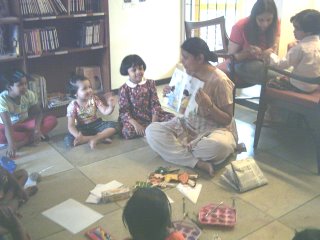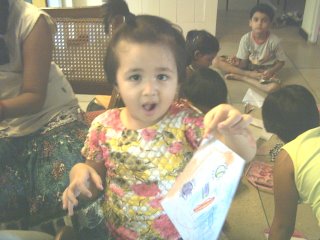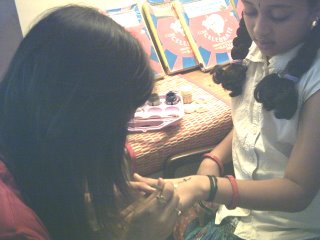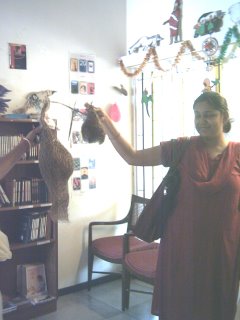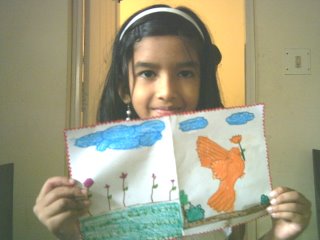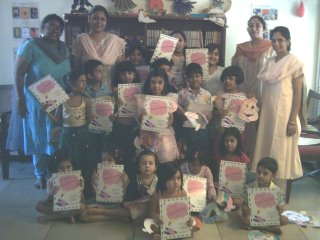... @ Mumbai!
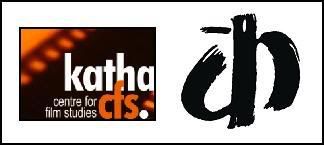
Katha Centre for Film Studies is back at the Alliance Francaise, Churchgate with a week long program of Film Screenings from Friday, 12th of January to Thursday, 18th of January 2007.
After a very successful Inaugural Festival in June 2006, we again bring you an eclectic choice of films from the world of cinema specially curated by individuals for whom cinema is a way of life!
Films will be introduced and screened by the curators and discussed and debated from 10 in the morning to 8 at night at the Alliance Francaise Auditorium, Churchgate.This festival is in collaboration with the National Film Archives of India, Pune and NFDC.
On the 12th and 13th of January, 2007, the Festival begins with two days of Indian films dedicated to the theme of Mumbai’s Chawls. Amrit Gangar(a film scholar, writer, curator) has specially put together a package of five feature films, a short film and a compilation on representation of Bombay in films tilted: "'CHALCHITRA: CHAWLCHITRA’-:Popular Hindi Cinema and Mumbai's Chawl." He will be leading an intensive session of discussions and debates on the polemics and politics of space in urban context.
On the 15th of January, 2007, Anuja Ghosalkar’s focus will be films by women directors. Anuja Ghosalkar has been teaching Cinema in Bombay for the last five years and is a researcher as well. She also was a part of the curatorial team for India’s first International Women’s film festival called, ‘Made By Women’, that traveled to eight cities across the world.
We have a young student of BMM, Suyash Barve, who will share his experience and love of cinema, which a package of feature and documentary films on the 16th of January, 2007.
Darius Cooper (professor of literature and film at San Diego Mesa College, writer, poet and critic) will be screening three feature films and introducing, exploring and analyzing various theories of cinema on the 17th of January.
We end the Festival with film enthusiast and cinema buff, Kiran David’s exciting selection which is packed with films from Japanese cinema.
The schedule of films is as follows and is subject to last minute changes. For information please contact us at : ppdada@gmail.com or 26313198 at the Katha Centre for Film Studies.
ABOUT US
KATHA , based in Delhi, is a "profit-for-all" non profit organisation that works in the broad areas of language, culture and translation, as well as poverty alleviation.
Known as a premier publishing house based in Delhi, Katha focuses on quality English translations and works with over 300 writers and 21 Indian languages. It has been at the leading edge of translation practices for over 18 years
Katha Centre for Film Studies, based in Mumbai, is one of KATHA’s responses to a growing need to situate and understand the significance of cinema as a unique language of contemporary art practices that has had an enormous impact on the masses.
From 1st April, 2006, Katha Centre for Film Studies has been active inthe city of Mumbai. Ever since our Inaugural festival, in June 2006, Katha Centre for Film Studies has been active in organizing regular screenings in collaboration with various institutions around the city like SVKM’s Law College, IIT Powai, Mumbai University, Bhavan’s Cultural Centre, Andheri, with the aim of creating spaces which would give room to debates/ discussions/ conversations on the excellence in cinema and would look at the medium critically and carefully.
The schedule of films for the festival beginning on the 12th of January is as follows and is subject to last minute changes. For information please contact us at : ppdada@gmail.com or 26313198 at the Katha Centre for Film Studies.
PLEASE NOTE:
1) The schedule is subject to last minute changes.
2) Entry is strictly on a FIRST COME FIRST SERVE basis. The Alliance Francaise Auditorium is a 75 seater. Those seated for the film will not be asked to leave if they wish to watch the next film.
3) The screenings are free of charge.There are no tickets or passes issued.
4) Literature containing Reviews/ Essays will be available on the films. A nominal amount amount will be charged for this.
12th January 2007 Friday
AMRIT GANGAR
(a film scholar, writer, curator) will introduce, debate and discuss the films which evoke polemics and politics of space in urban context.
Theme: ‘CHALCHITRA: CHAWLCHITRA’
Popular Hindi cinema and Mumbai's Chawl
Introduction: 10 a.m. to 10.30 a.m
Asli Naqli 10.30 a.m. to 1.15 pm.
Directed by Hrishikesh Mukherjee Year: 1962 ; Duration: 160 minutes ; Language: Hindi
Lunch Break : 1.15 p.m. to 1.45 p.m.
Bluffmaster 1.45 p.m. to 4 p.m. Directed by Manmohan Desai Year: 1972 Duration: 135 minutes ; Language: Hindi
Coffee Break : 4.00 p.m. to 4.30 p.m.
Piya Ka Ghar 4.30 p.m. to 6.45p.m.
Directed by Basu Chatterjee; Year: 1972; Duration: 135 minutes ; Language: Hindi
KK Mahajan's story of Piya ka Ghar's chawl shoot 6.50 p.m. to 7.15 p.m.
Harbour Line Stories Etc. 7.20 p.m. to 8 p.m.
Directed by Amrit Gangar; Year: 2001; Duration: 35 minutes
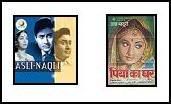
13th January 2007 Saturday
AMRIT GANGAR,
continues the discussion on the theme of ‘CHALCHITRA: CHAWLCHITRA and will introduce, discuss and screen the following films.
Introduction: 10 a.m. to 10.30 a.m.
Compilation: Representation of Bombay in Cinema 10.30 a.m. to 11 a.m. by Amrit Gangar; Duration: 25 minutes
Katha 11 a.m.. to 1.30 p.m.
Directed by Sai Paranjape; Year: 1983; Duration: 141 minutes ; Language: Hindi
Lunch Break : 1.30 p.m. to 2.00 p.m.
Mohan Joshi Haazir Ho 2 p.m. to 4.15 pm.
Directed by Saeed Mirza; Year: 1984 ; Duration: 130 minutes ; Language: Hindi
Coffee Break : 4.15 p.m. to 4.45 p.m.
The Story of Two chawls 4.45 p.m. to 5.15 p.m.
The Chawl and the City's spatial transformations 5.15 p.m. onwards
A Discussion with Amrit Gangar, Neera Adarkar, Ramu Ramnathan
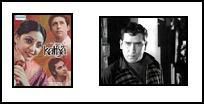
15th January 2007 Monday
ANUJA GHOSALKAR
(Lecturer, researcher) will introduce debate and discuss the following films by Women Directors :
Introduction: 10 a.m. to 10.30 a.m.
The House is Black ( Kaneh Siah Ast) 10.30 a.m. to 11 a.m.
Directed by Forugh Farrokhzad ; Year:1963 ; Duration:20 minutes; Language: Persian; Country: Iran
India Song 11 a.m. to 1 p.m. Directed by Marguerite Duras ; Year: 1975 ; Duration: 120 minutes ; Language: French; Country: France
Lunch Break : 1.00 p.m. to 1.30 p.m.
Daisies ( Sedmikrasky) 2 p.m. to 3.15 p.m. Directed by Vera Chytilova ; Year: 1966 ; Duration: 74 minutes ; Language: Czech; Country: Czechoslovakia
Coffee Break : 3.45 p.m. to 4.15 p.m.
Cleo from 5 to 7 ( Cleo a 5 de 7) 4.15 p.m. to 5.45 p.m.
Directed by Agnes Varda; Year: 1961 ; Duration:90 minutes ; Language: French; Country: France/Italy
The Swamp ( La Cienaga) 6.p.m. to 7.45 p.m.
Directed by Lucrecia Martel; Year: 2001 ; Duration:103 minutes; Language: Spanish; Country: Argentina/ France/ Spain
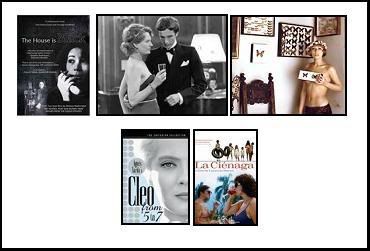
16th January 2007 Tuesday
SUYASH BARVE
(student) will introduce, debate and discuss the following films:
Introduction: 10 a.m. to 10.30 a.m.
The Outcry (Il Grido) 10.30 a.m. to 12.30 p.m.
Directed by Michelangelo Antonioni; Year: 1957; Duration: 116 minutes; Language: Italian; Country: Italy/USA
Germany Year Zero (Germania anno zero) 12.30 p.m. to 1.30 p.m. Directed by Roberto Rossellini; Year: 1948; Duration: 78minutes; Language: Italian/German Country:Italy
English/ French
Lunch Break : 1.30 p.m. to 2 p.m.
Ballad of a little soldier ( Ballad vom klienen soldaten) 2 p.m. to 2.50 p.m. Directed by Werner Herzog; Year: 1984; Duration: 46 minutes ; Language: English/ German; Country:West Germany
Herakles 3 p.m. to 3.10 p.m. Directed by Werner Herzog; Year: 1962; Duration: 10 minutes ; Language: German; Country: West Germany
The Great Ecstasy of Woodcarver Steiner (Die grobe Ekstase des bildschnitzers Steiner) 3.15 p.m. to 4 p.m. Directed by Werner Herzog; Year: 1974; Duration: 45 minutes ; Language: German; Country: West Germany
Coffee Break : 4 p.m. to 4.30 p.m.
What time is it there? (Ni neiban jidian) 4.30 p.m. to 6.30 p.m.
Directed by Tsai Ming-Liang; Year: 2001; Duration: 116 minutes; Language: Mandarin; Country: Taiwan// French/ Taiwanese France
The Skywalk is gone ( Tianqiao bu jianle) 7 p.m. to 7.30 p.m.
Directed by Tsai Ming-Liang; Year: 2002; Duration: 25 minutes; Language: Mandarin; Country: Taiwan/ France
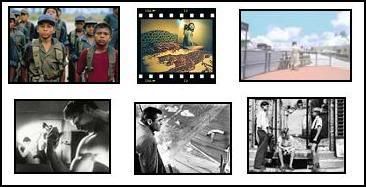
17th January 2007 Wednesday
DARIUS COOPER
( professor of literature and film at San Diego Mesa College, a writer, poet and critic )will introduce, debate and discuss the following films:
Introduction: 10 a.m. to 11 a.m.
The Sweet Hereafter 11 a.m. to 1 p.m.
Directed by Atom Egoyan.; Year: 1997; Duration: 112 minutes; Language: English; Country: Canada
Lunch Break : 1.p.m. to 1.30 p.m.
House of Games 2 p.m. to 4 p.m.
Directed by David Mamet.; Year: 1987; Duration: 102 minutes; Language: English; Country: USA
Coffee Break : 4 p.m. to 4.30 p.m.
The Decalogue ( Part 1) (Dekalog) 5 p.m. to 6 p.m.
Directed by Krzsysztof Kieslowski; Year: 1989; Duration: 55 minutes; Language: Poland; Country: Polish

18th January 2007 Thursday
KIRAN DAVID
(film enthusiast) will introduce, debate and discuss the following films:
Introduction: 10 a.m. to 10.30 a.m.
A One and a Two...(YiYi) 10.30 a.m. to 1.30 p.m.
Directed by Edward Yang; Year:2000; Duration: 173 minutes; Language: Taiwanese/; Country: Taiwan/ Hokkien/English/Japanese Japan
Lunch Break : 1.30p.m. to 2 p.m.
The Life of Jesus (la Vie de Jesus) 2 p.m. to 3.45 p.m.
Directed by Bruno Dumont.; Year: 1997; Duration: 96 minutes; Language: French; Country: France
Graveyard of honour ( Jingi no Hakaba) 3.50 p.m. to 5.30 p.m.
Directed by Kinji Fukasaku.; Year: 1975; Duration: 94 minutes; Language: Japanese; Country: Japan
Coffee Break : 5.30 p.m. to 5.45 p.m.
Dead or Alive (Dead or Alive: Hanzaisha) 5.45 p.m. to 7.30 p.m.
Directed by Takashi Miike; Year: 1999; Duration: 105 minutes; Language: Mandarin; Country: Japan/Japanese
The Bedroom ( Shisenjiyou no Aria) 7.30 p.m.to 8.30 p.m.
Directed by Hisayasu Sato; Year: 1992; Duration: 60 minutes; Language: Japanese; Country: Japan
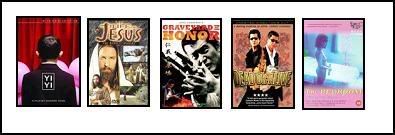
PLEASE NOTE:
1) The above schedule is subject to last minute changes.
2) Entry is strictly on a FIRST COME FIRST SERVE basis. The Alliance Francaise Auditorium is a 75 seater. Those seated for the film will not be asked to leave if they wish to watch the next film.
3) The screenings are free of charge.There are no tickets or passes issued.
4) Literature containing Reviews/ Essays will be available on the films. A nominal amount amount will be charged for this.
To great cinema. We're looking to having you with us.






 About 30 students from Classes IV, V and VI of St Mary’s School, Dwarka and Bluebells School International, Kailash Colony participated in the workshop.
About 30 students from Classes IV, V and VI of St Mary’s School, Dwarka and Bluebells School International, Kailash Colony participated in the workshop. 







